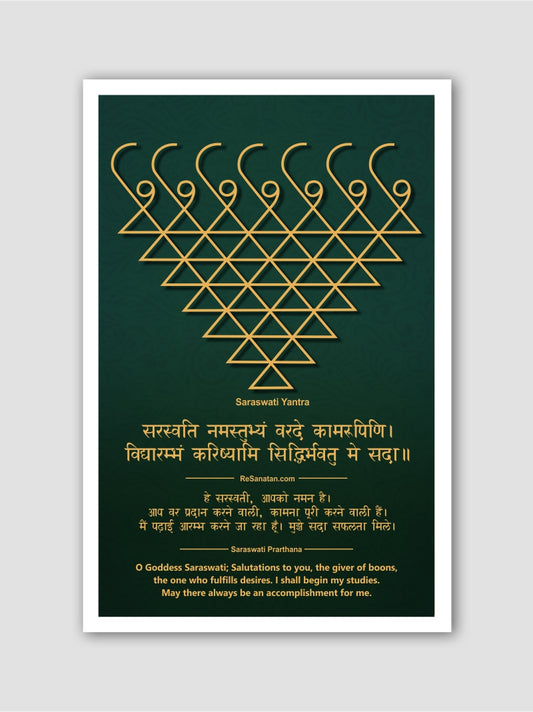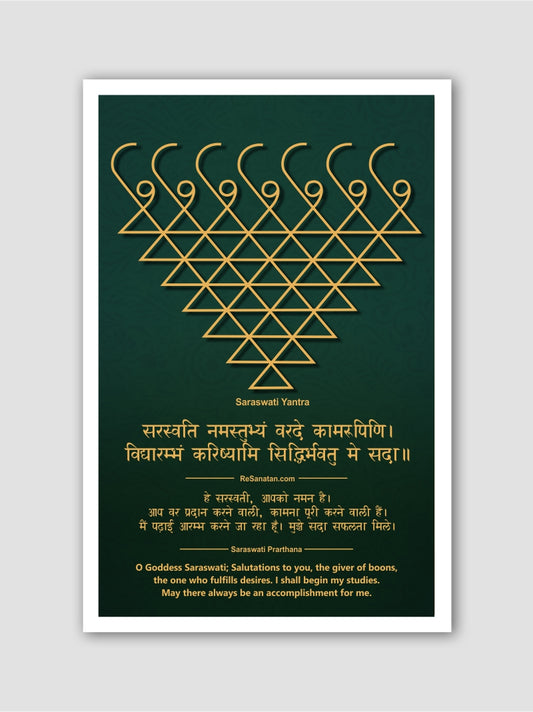Hinduism, one of the oldest spiritual traditions, has produced a rich legacy of saints and enlightened personalities who have shaped its cultural and religious fabric. These saints, revered for their deep wisdom, compassion, and unwavering dedication to the principles of Dharma (righteousness), have inspired generations to lead lives of spirituality, selflessness, and devotion.
Their teachings transcend time, offering solutions to the challenges of the modern world. Let's explore the lives of a few prominent saints in Hinduism, whose influence still resonates today.
1. Sage Valmiki: The Adi Kavi of Hindu Literature
Valmiki, the revered author of the ancient epic Ramayana, was not born a saint but transformed through spiritual awakening. Once a bandit named Ratnakara, his heart changed after an encounter with the great sage Narada. After intense penance, Valmiki was blessed with divine knowledge and became the “Adi Kavi” (the first poet). His work, the Ramayana, not only narrates the life of Lord Rama but also emphasizes the virtues of truth, loyalty, and righteousness.
Valmiki's transformation illustrates the power of devotion and repentance, showing that anyone, no matter their past, can achieve spiritual liberation.
2. Adi Shankaracharya: The Philosopher of Non-Dualism
Adi Shankaracharya, an 8th-century philosopher and theologian, is one of the most influential saints in Hinduism. He is renowned for reviving and consolidating the Advaita Vedanta philosophy, which emphasizes the non-dual nature of the self and the ultimate reality—Brahman. Shankaracharya traveled across India, establishing four major mathas (monasteries) to spread the message of unity and spiritual wisdom.
His commentaries on the Bhagavad Gita, Upanishads, and Brahma Sutras remain cornerstones of Hindu philosophy, guiding spiritual seekers to this day. His teachings advocate the realization of one's true self beyond the illusions of the material world.
3. Sant Kabir: The Mystic Poet and Social Reformer
Sant Kabir, a 15th-century mystic poet, is revered for his simple yet profound couplets (dohas) that reflect a deep understanding of spirituality, life, and social equality. Though born into a Muslim family, Kabir’s philosophy bridged the gap between Hinduism and Islam, promoting a message of love, unity, and devotion to a formless God (Nirguna Brahman).
Kabir challenged orthodox rituals and caste distinctions, advocating for a personal connection with the divine through love and devotion. His verses, filled with deep spiritual wisdom, continue to inspire people to seek a deeper meaning in life beyond superficial divisions.
4. Sage Patanjali
Sage Patanjali is considered the father of modern yoga and the author of the Yoga Sutras, a foundational text in the study of yoga philosophy. His teachings provide an eightfold path of yoga (Ashtanga Yoga) that guides practitioners toward self-realization and liberation.
Patanjali's wisdom on controlling the mind, cultivating discipline, and achieving inner peace through meditation has made him a timeless spiritual figure. His influence extends to modern yoga practices, where his teachings remain relevant for those seeking mental clarity and spiritual awakening.
5. Namdev (1270–1350)
Namdev was another prominent saint of the Bhakti movement, known for his devotional songs dedicated to Lord Vithoba, a form of Lord Krishna. Born in Maharashtra, Namdev’s hymns emphasize self-surrender to God, the importance of Nama-sankirtan (chanting the name of God), and the rejection of social divisions based on caste.
Namdev’s devotional songs form a significant part of the religious culture in Maharashtra, and his teachings on the equality of all beings continue to influence Hindu spiritual thought.
6. Dnyaneshwar (1275–1296)
Sant Dnyaneshwar, also spelled Jnaneshwar, was a 13th-century Marathi saint and poet. He is best known for his work Dnyaneshwari, a commentary on the Bhagavad Gita in Marathi. His works have had a profound influence on the Bhakti movement in Maharashtra, especially within the Varkari tradition.
His teachings combine Advaita Vedanta philosophy with devotional practices, inspiring millions through the ages to seek a deeper connection with the divine.
7. Lal Ded (1320–1392)
Lal Ded, also known as Lalleshwari, was a mystic poet and saint from Kashmir. A revered figure in both Hinduism and Sufism, Lal Ded’s poems (called Vakh) reflect her deep spiritual wisdom and longing for the divine. She is considered one of the earliest exponents of Kashmir Shaivism.
Lal Ded’s poetry emphasizes self-realization, detachment from materialism, and union with the divine. Her verses, often sung or recited, continue to inspire spiritual seekers in Kashmir and beyond.
8. Sant Ravidas (1450–1520)
Sant Ravidas was a 15th-century mystic poet and social reformer, deeply associated with the Bhakti movement. Born into a family of leather workers, Ravidas rejected the social inequalities of the caste system and preached equality, love, and devotion to God. He is remembered for his profound devotion to a formless God (Nirguna Brahman) and his emphasis on spirituality over ritualistic practices.
Ravidas' devotional songs, bhajans, and poetry express a deep longing for union with the divine and a vision of a casteless, inclusive society. His most famous follower was Meera Bai, and his teachings continue to inspire marginalized communities, particularly in Northern India. His verses, collected in the Guru Granth Sahib (the holy scripture of Sikhism), have made him a respected figure in both Hindu and Sikh traditions.
9. Vallabhacharya (1479–1531)
Vallabhacharya, the founder of the Pushtimarg sect, is one of the foremost saints of the Bhakti movement. He was a philosopher and theologian who propagated the path of grace (Pushti Marga), which teaches that salvation can be attained through the unconditional love and grace of Lord Krishna. Vallabhacharya’s followers see Krishna as the supreme deity, and their worship practices include singing bhajans and offering seva (service) to Krishna.
Vallabhacharya’s philosophy emphasizes divine grace over human effort, making devotion to God the key to salvation.
10. Sri Chaitanya Mahaprabhu (1486–1534)
Sri Chaitanya Mahaprabhu was a 16th-century saint and the proponent of the Gaudiya Vaishnavism tradition, which emphasizes devotion to Lord Krishna through Kirtan (chanting). Born in Bengal, Chaitanya’s ecstatic devotion and teachings of Bhakti (devotion) revolutionized spiritual practices, spreading the message of love and surrender to Krishna.
Chaitanya’s followers regard him as an incarnation of Krishna, and his influence led to the establishment of the ISKCON (International Society for Krishna Consciousness) movement. His life emphasizes Nama-sankirtan (chanting the holy names of God) as the simplest and most effective way to attain spiritual enlightenment.
11. Meera Bai (1498–1547)
Meera Bai was a mystic poet and devotee of Lord Krishna, known for her deep devotion expressed through soulful poetry and bhajans. Born into a royal family in Rajasthan, Meera rejected the material world and chose a life devoted to Krishna. Her songs of divine love, longing, and surrender to God became an integral part of the Bhakti movement.
Meera’s unwavering love for Krishna, despite opposition from her family and society, has made her a symbol of pure devotion and dedication. Her poems are still sung today and inspire devotees across the globe.
12. Goswami Tulsidas (1511–1623)
Tulsidas is one of the most revered saints in Hinduism, primarily known for his epic poem Ramcharitmanas, a retelling of the Ramayana in the vernacular language, Hindi. His devotion to Lord Rama and his poetic genius made him a key figure in popularizing the Bhakti movement in North India.
Through his works, Tulsidas emphasized devotion (Bhakti) to Rama, stressing the importance of love, humility, and surrender to the divine. His Ramcharitmanas continues to be read and recited across India, especially during religious festivals like Ram Navami and Diwali.
13. Eknath (1533–1599)
Sant Eknath was a Marathi saint and scholar who played a significant role in spreading the Bhakti movement in Maharashtra. A devotee of Lord Vithoba, Eknath was known for his humility and deep sense of devotion. His works include the Eknathi Bhagavata, a Marathi commentary on the Bhagavata Purana, and numerous abhangas (devotional songs).
Eknath's teachings emphasized bhakti (devotion) as the highest form of worship and promoted a spirit of unity, love, and service to others, transcending social and caste barriers.
14. Raghavendra Swami (1595–1671)
Raghavendra Swami was a 16th-century saint and philosopher from Karnataka, India. A follower of the Dvaita school of Vedanta, Raghavendra is known for his deep devotion to Lord Vishnu and his vast knowledge of Vedic literature. He is believed to have performed numerous miracles, and his Brindavana (samadhi) at Mantralayam is a popular pilgrimage site.
Raghavendra Swami's teachings focus on devotion (bhakti) and righteous living (dharma), with an emphasis on the grace of Lord Vishnu in achieving salvation.
15. Sant Tukaram (1608–1649)
Sant Tukaram was a poet-saint from Maharashtra and one of the most important figures in the Bhakti movement. A devotee of Lord Vithoba, his abhangas (devotional poetry) express deep love for God and emphasize simplicity, humility, and devotion. Tukaram rejected materialism and social inequalities, advocating instead for devotion as a means to attain spiritual liberation.
His life of poverty and selfless service to others made him a revered figure, and his teachings continue to influence spiritual seekers in Maharashtra and beyond.
16. Sri Ramakrishna Paramahamsa (1836–1886)
Sri Ramakrishna, a 19th-century mystic from Bengal, is known for his intense devotion to Goddess Kali and his realization of the oneness of all religions. His spiritual journey involved practicing various religious paths, including Christianity and Islam, demonstrating that all paths ultimately lead to the same divine source.
Ramakrishna’s teachings emphasize the importance of surrendering to God’s will, devotion, and leading a life of simplicity. His most famous disciple, Swami Vivekananda, carried his message of universal spirituality to the world, inspiring millions to follow a path of self-realization and service.
17. Sri Yukteswar Giri (1855–1936)
Sri Yukteswar Giri was a great yogi and the guru of Paramahansa Yogananda. A respected scholar of astrology, he authored the book The Holy Science, which sought to unify the principles of Western science and Eastern spirituality. He was a key figure in the Kriya Yoga tradition, blending scientific understanding with ancient Vedic knowledge.
Sri Yukteswar’s teachings emphasized the need for spiritual discipline and self-inquiry to attain self-realization. He played a pivotal role in bridging the spiritual traditions of the East and West through his teachings and influence on Yogananda.
18. Swami Vivekananda (1863–1902)
Swami Vivekananda, the fiery disciple of Ramakrishna, is often credited with bringing Hindu philosophy and spiritual wisdom to the global stage. His historic address at the World Parliament of Religions in Chicago in 1893 introduced the world to the principles of Vedanta and the message of universal brotherhood.
Vivekananda’s teachings emphasize self-empowerment, service to humanity, and the unity of all religions. He founded the Ramakrishna Mission, which continues to promote education, social welfare, and spiritual growth across the globe. His words, “Arise, awake, and stop not till the goal is reached,” still resonate as a call for spiritual and personal awakening.
19. Sri Aurobindo (1872–1950)
Sri Aurobindo was a philosopher, yogi, and freedom fighter who introduced a new spiritual approach called Integral Yoga. His teachings emphasize the spiritual evolution of humanity, suggesting that human consciousness can be transformed through yoga and spiritual practice. He founded the Sri Aurobindo Ashram in Pondicherry, which remains a center for spiritual seekers.
Sri Aurobindo’s writings, including The Life Divine and Savitri, focus on the potential for divine consciousness to manifest on Earth, guiding individuals toward a higher purpose.
20. Ramana Maharshi (1879–1950)
Ramana Maharshi was a great sage from South India, known for his emphasis on Atma Vichara (self-inquiry) as the direct path to realizing the true Self. At the age of 16, he had a profound spiritual awakening, after which he moved to the holy mountain Arunachala and spent the rest of his life in meditation and self-realization.
Ramana Maharshi’s core teaching revolves around the question "Who am I?" Through this inquiry, he guided seekers to experience their true nature, beyond body and mind, as the eternal, unchanging awareness. His teachings, though simple, have had a profound influence on spiritual seekers around the world.
21. Swami Ramdas (1884–1963)
Swami Ramdas, also known as Papa Ramdas, was a saint and philosopher who spread the message of love, peace, and devotion through the repetition of God's name (Nama Japa). Born in Kerala, he renounced worldly life and dedicated himself to the service of humanity, establishing the Anandashram in Kanhangad, where his spiritual work continues today.
Swami Ramdas' teachings center around bhakti (devotion) and atma-jnana (self-knowledge), encouraging seekers to immerse themselves in God's love through meditation, selfless service, and chanting.
22. Swami Sivananda (1887–1963)
Swami Sivananda was a renowned spiritual teacher, founder of the Divine Life Society, and an author of over 200 books on yoga, Vedanta, and spirituality. Born in Tamil Nadu, he was initially a doctor, but his yearning for spiritual truth led him to Rishikesh, where he embraced the life of a monk. His teachings emphasize the integration of service, devotion, meditation, and wisdom, encouraging a balanced spiritual practice that benefits the self and others.
His message, "Serve, Love, Meditate, Realize," encapsulates his approach to life—selfless service and devotion to God. Today, his ashrams and followers continue to promote the values of simplicity, humility, and spiritual growth.
23. Paramahansa Yogananda (1893–1952)
Paramahansa Yogananda, the author of the spiritual classic Autobiography of a Yogi, was one of the first Indian saints to bring the teachings of Hinduism and yoga to the West. He founded the Self-Realization Fellowship (SRF) in the United States to spread the ancient practices of Kriya Yoga and meditation.
Yogananda’s teachings emphasize the unity of all religions and the importance of direct experience of God through inner communion. His life and writings continue to inspire spiritual seekers across the world, particularly those interested in meditation and the science of self-realization.
24. Anandamayi Ma (1896–1982)
Anandamayi Ma was a Bengali saint, known for her spontaneous and ecstatic spiritual state. She was revered as a living goddess by her followers and emphasized the direct experience of God. Anandamayi Ma's life was a testament to divine grace, and she led an extraordinary life of devotion, love, and compassion.
Her teachings focus on surrendering to the will of God and embracing the divine in every aspect of life. She attracted devotees from all walks of life, and her simplicity and spiritual wisdom continue to inspire spiritual seekers worldwide.
25. Bhagwan Nityananda (1897–1961)
Bhagwan Nityananda, a mystic saint from Kerala, is revered for his silent teachings and ability to perform miracles. He founded an ashram in Ganeshpuri, Maharashtra, where seekers would come to experience his presence and wisdom. Nityananda is known for his emphasis on silent meditation and the grace of the divine, leading many to experience profound spiritual awakenings.
Nityananda’s teachings continue to influence spiritual seekers, particularly those following the path of Kundalini awakening and the subtle energies of the body.
26. Neem Karoli Baba (1900–1973)
Neem Karoli Baba, also known as Neeb Karori Baba or Maharaj-ji, was a great Hindu saint and mystic known for his profound teachings on love, service, and devotion. A devotee of Lord Hanuman, Neem Karoli Baba is credited with guiding many spiritual seekers, including prominent Western figures such as Ram Dass (author of Be Here Now), Krishna Das, and Steve Jobs.
Maharaj-ji’s teachings were simple yet powerful—he emphasized the importance of unconditional love, selfless service to others (seva), and surrender to God. Neem Karoli Baba performed numerous miracles, and his presence is said to have brought peace and healing to countless people. His ashrams, especially the Kainchi Dham Ashram in Uttarakhand, continue to be pilgrimage sites for those who seek spiritual growth and connection with the divine.
27. Swami Chinmayananda (1916–1993)
Swami Chinmayananda was a 20th-century Hindu spiritual leader who played a pivotal role in reviving interest in the teachings of the Bhagavad Gita and the Vedantic tradition. He founded the Chinmaya Mission to spread the knowledge of Advaita Vedanta, focusing on self-realization and spiritual development.
Through his talks, writings, and worldwide spiritual mission, Swami Chinmayananda popularized Vedanta among modern audiences, emphasizing practical spirituality for everyday life.
28. Maharishi Mahesh Yogi (1918–2008)
Maharishi Mahesh Yogi is widely known for popularizing Transcendental Meditation (TM), a simple meditation technique that promotes relaxation, stress reduction, and personal development. A disciple of Swami Brahmananda Saraswati, Maharishi spread the TM movement globally, drawing attention from spiritual seekers and celebrities alike, including The Beatles.
His teachings emphasize the importance of meditation to attain higher consciousness and lead a harmonious life. Maharishi’s message of inner peace and global unity has inspired millions to adopt TM as a daily practice.
Conclusion: The Eternal Legacy of Hindu Saints
The saints of Hinduism have left an indelible mark on the spiritual landscape, offering timeless wisdom that continues to guide and inspire people. Whether through their philosophical contributions, acts of compassion, or mystic poetry, these saints exemplify the highest ideals of human life. They remind us that spirituality is not confined to rituals but lies in understanding the deeper truths of existence, leading a life of service, and fostering unity among all beings.
As we reflect on the teachings of these saints, we find that their message is as relevant today as it was centuries ago, guiding humanity toward a life of peace, love, and inner fulfillment.


























